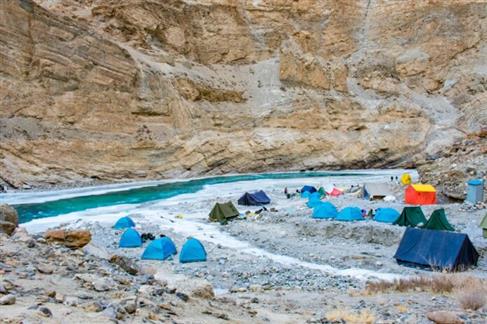15 Mar 2024
Leh Ladakh - Place to visit Ladakh
Traveling to Ladakh is an adventure like no other. This high-altitude desert region in the Indian state of Jammu and Kashmir is known for its stunning landscapes, ancient monasteries, and unique culture. Here's a glimpse into what you can expect when visiting Ladakh:
Leh - The Heart of Ladakh: Start your journey in Leh, the capital of Ladakh, and explore the bustling markets, ancient monasteries, and breathtaking views of the surrounding mountains.
Nubra Valley - The Valley of Flowers: Drive over the world's highest motorable pass, Khardung La, to reach the enchanting Nubra Valley. Explore the sand dunes of Hunder and visit the Diskit Monastery for panoramic views of the valley.
Pangong Lake - The Enchanting Lake: Visit the mesmerizing Pangong Lake, known for its ever-changing shades of blue. Stay overnight in a camp by the lake and witness a breathtaking sunrise over the water.
Tso Moriri Lake - The Serene Lake: Explore the remote beauty of Tso Moriri Lake, located in the Changthang region of Ladakh. The lake is surrounded by snow-capped mountains and is a haven for birdwatchers.
Monasteries of Ladakh: Explore the ancient monasteries of Ladakh, such as Thiksey, Hemis, and Lamayuru. Experience the spiritual ambiance of these monasteries and witness the monks performing their daily rituals.
Adventure Activities: Ladakh offers a range of adventure activities, including trekking, river rafting, and mountain biking. Explore the rugged terrain and pristine landscapes on these thrilling adventures.
Local Culture and Traditions: Immerse yourself in the rich culture and traditions of Ladakh by visiting local villages and interacting with the friendly locals. Experience the vibrant festivals and traditional Ladakhi cuisine.
Wildlife of Ladakh: Ladakh is home to a unique variety of wildlife, including the elusive snow leopard. Visit the Hemis National Park for a chance to spot this magnificent creature, along with other wildlife like ibex and blue sheep.
Responsible Travel: As you explore Ladakh, remember to be a responsible traveler and respect the local culture and environment. Follow the principles of sustainable tourism to help preserve this fragile ecosystem.





